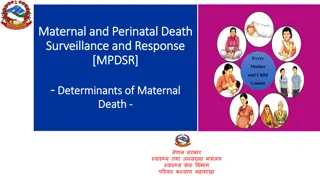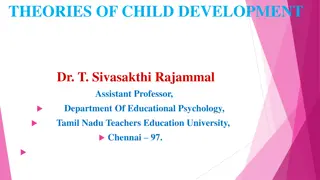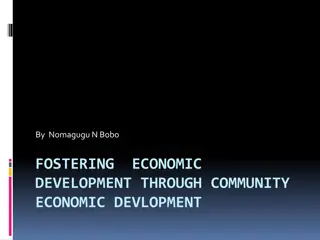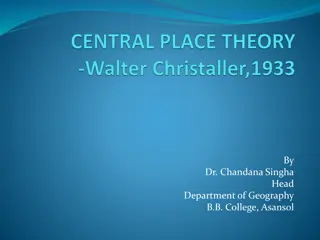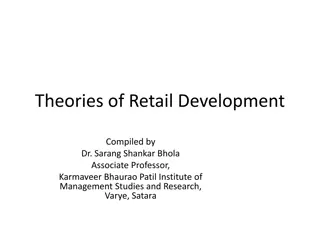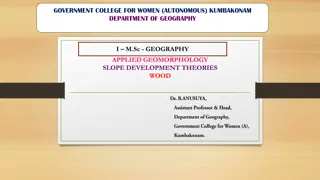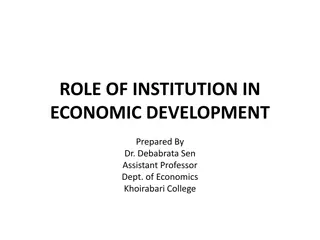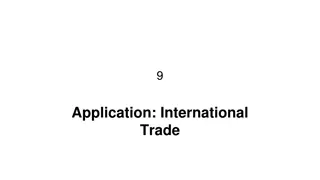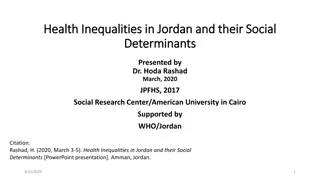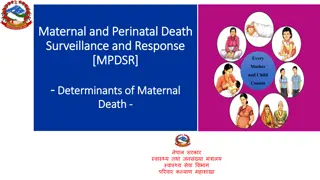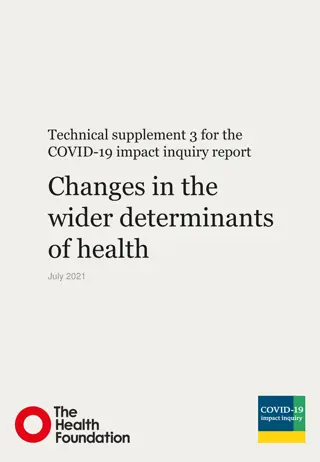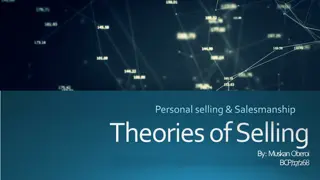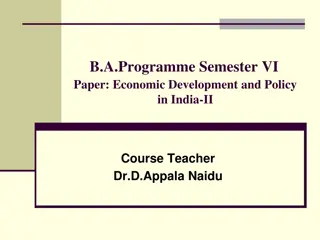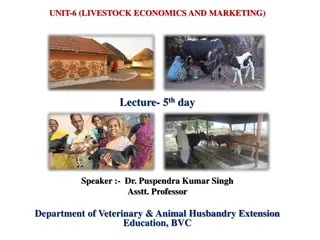Overview of Economic Development Theories and Determinants
Economic development is a vital area of study that focuses on the causes and solutions for poverty in nations. This field examines the process of increasing per capita income and economic welfare in a country over time. Key viewpoints on economic development, including classical and modern perspectives, shed light on definitions and determinants such as natural resources, labor, market size, and capital formation.
Download Presentation

Please find below an Image/Link to download the presentation.
The content on the website is provided AS IS for your information and personal use only. It may not be sold, licensed, or shared on other websites without obtaining consent from the author. Download presentation by click this link. If you encounter any issues during the download, it is possible that the publisher has removed the file from their server.
E N D
Presentation Transcript
Introduction Although Adam Smith the father of modern economics had examined the problem of economic development two hundred year ago yet it is only for the last sixty years that economists took great interest in the study of problem of under-developed countries. In the words of Meier and Baldwin "A study of poverty of nation has even more urgency than a study of the wealth of nations" Meaning: Economic development studies the causes and cures of general poverty. Economic development refers to that process by which per capita income and economic welfare of a country increase over-time. It may be noted that the terms EconomicDevelopment and Economic Growth are used interchangeably. Schumpeter in his book "The Theory of Economic development" (1911) clarified the distinction between economic development and economic growth. Robert Clark in his book about Liberian Economy titled "Growth without development" has proved that despite growth of an economy it is possible that it may not have any development.
Definitions Two main approaches regarding definitions of economic development are a under:- APPROACHES REGARDING ECONOMIC DEVELOPMENT Classical View Modern View Increase in Economic Welfare Increase in Real National Income or Real per Capita Income
Classical View Paul Albert, "Economic Development is the exploitation of all productive resources by a country in order to expand real income". Modern View Colin Clark, "Economic development is simply an increase in economic welfare".
Determinants of Economic Development Dr. R.D. Gill, Determinants of economic development are based upon the size of production capacity, organization and character of and economy" The determinants of economic development can be classified into two categories which can be expressed in the form of following formula: G = f (x + y) Determinants of Economic Development Economic Determinants Non-Economic Determinants
Economic Determinants of Economic Development or Growth: Natural Resources. Labour or Human Resources. Structural Change. Size of the Market. Capital Formation. 1. 2. 3. 4. 5.
6. 7. Capital-Output Ratio. Scientific and Technical Progress. 8. 9. 10. 11. 12. 13. Financial Stability. Able Entrepreneurs and Organisation. Development Planning. International Determinants. Skill Formation. Skill Formation.
Non-economic Determinants of Economic Development: 1. 2. 3. 4. 5. 6. Political Determinants. Social Determinants. Religious Determinants. Aspiration of Development. Freedom from Corruption. Law and Order Situation. Conclusion: In short, economic development is not determined by any single factor. Economic development depends on economic, social, political and religious factors.




